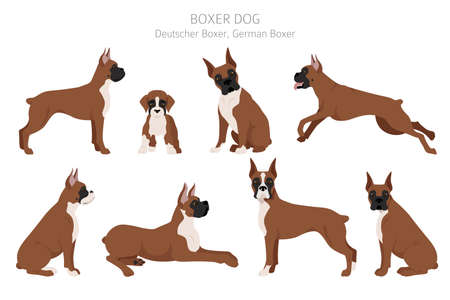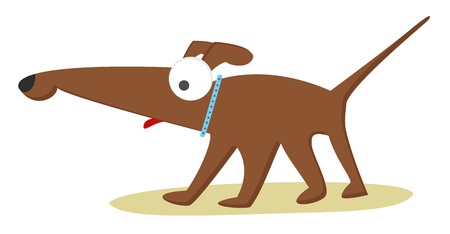1. Understanding the Nutritional Needs of Working and Sporting Dogs
In the UK, working and sporting dogs such as Border Collies, Labradors, Springer Spaniels, and various gundogs are cherished companions and valuable partners in both rural and urban settings. These dogs have unique nutritional requirements compared to their less active counterparts, primarily due to the physical demands of their roles—be it herding sheep on a windswept hill, flushing game in the countryside, or supporting owners through agility competitions. The British climate can add another layer of complexity; cold, wet weather increases energy expenditure as dogs work to maintain body temperature, while hot summers may affect hydration and stamina.
Each breed brings its own set of challenges. For example, a Border Collie tirelessly rounding up livestock needs sustained energy from slow-release carbohydrates and high-quality proteins. Conversely, a Labrador used for retrieving on long shoot days will benefit from balanced fats to fuel endurance without adding excess weight. Beyond breed differences, individual factors like age, metabolism, and workload intensity mean that nutrition must be tailored with care. A dog’s daily ration may need adjusting depending on whether it’s a rest day or one filled with hours of fieldwork or trialling.
Understanding these variables is essential for maintaining optimal health and peak performance. Owners should not only consider calorie content but also ensure meals provide essential vitamins, minerals, and joint-supporting nutrients—especially as many working breeds are prone to wear-and-tear injuries. In the following sections, we’ll delve deeper into how to select the right diet for your working or sporting dog in the UK, with practical advice grounded in local experience and expert recommendations.
2. Key Nutrients for Performance and Stamina
For working and sporting dogs in the UK, nutrition is not just about filling their bowls—it’s about fuelling them for the demanding tasks they face each day. These active dogs need a tailored diet packed with specific nutrients to support their energy levels, muscle function, and long-term health. Let’s explore the essential nutrients and their roles in promoting stamina and peak performance.
Protein: Building and Repairing Muscle
Protein is fundamental for maintaining strong muscles, repairing tissues after strenuous activity, and supporting immune health. Dogs involved in activities such as sheep herding, field trials, or agility competitions require higher protein intake than their less active counterparts. In the UK, look for high-quality animal proteins like chicken, lamb, or fish as primary ingredients in your dog’s food.
Fats: The Powerhouse of Energy
Fats are a concentrated source of energy—essential for sustained activity and endurance. They provide more than twice the energy per gram compared to carbohydrates or proteins. For working breeds facing long days on the moors or fields, healthy fats from sources such as fish oil or chicken fat help keep their energy up while also supporting coat health.
Carbohydrates: Quick Release Fuel
While fats supply slow-burning energy, carbohydrates offer quick-release fuel for intense bursts of activity. Whole grains like brown rice and barley or vegetables such as sweet potato are excellent carbohydrate sources that also provide valuable fibre for digestive health.
Key Nutrients Table
| Nutrient | Main Function | Best Sources (UK Context) |
|---|---|---|
| Protein | Muscle building & repair | Chicken, lamb, fish, beef |
| Fat | Sustained energy & coat health | Fish oil, chicken fat, flaxseed oil |
| Carbohydrate | Immediate energy & fibre | Brown rice, barley, sweet potato |
| Vitamins | Immune support & metabolism | Liver, leafy greens, eggs |
| Minerals | Bone strength & nerve function | Bone meal, seaweed, vegetables |
Vitamins and Minerals: The Unsung Heroes
No diet is complete without an adequate supply of vitamins (like A, D, E) and minerals (such as calcium and phosphorus). These micronutrients play vital roles in everything from bone development to nerve signalling and immune defence. For British owners feeding a commercial diet, choose formulas designed for high-activity dogs—or consult with your vet if you’re preparing homemade meals.
Caring for Your Dog’s Unique Needs
Every working or sporting dog is unique—age, breed, workload and even climate can all influence their nutritional requirements. By understanding the role of each nutrient and choosing foods with high-quality ingredients suited to British conditions and lifestyles, you’ll be well on your way to nurturing a dog that is healthy, happy and ready for action year-round.

3. Feeding Regimens and Best Practices
Feeding working and sporting dogs in the UK requires careful attention to their unique schedules, energy demands, and digestive health. A well-structured feeding regimen is essential for sustaining peak performance, whether your dog is training for a field trial, competing in agility, or accompanying you on a day’s shoot in the countryside.
Meal Timing: When to Feed for Optimal Performance
Timing meals around your dog’s work or competition schedule is crucial. It is generally recommended to feed working dogs at least two hours before strenuous activity to allow for proper digestion and to avoid gastric issues like bloat, especially common in deep-chested breeds. After intense exercise, allow your dog to cool down before offering food—usually 30 minutes post-exertion is ideal. For those involved in all-day activities, such as beating or gundog work during shooting season, smaller, more frequent meals may help maintain energy without overloading the stomach.
Portion Control: Tailoring Meals to Activity Levels
Portion size should be adjusted according to your dog’s workload. During periods of intense training or competition, energy expenditure increases significantly. Increase portions accordingly, but monitor body condition closely—overfeeding can lead to unwanted weight gain, which may hamper performance and joint health. Conversely, during off-season or rest days, reduce meal sizes to prevent excess calorie intake. Always use a scale or measuring cup for accuracy rather than relying on visual estimates.
Feeding Frequency: Splitting Meals for Digestive Health
For most working and sporting dogs in the UK, splitting daily rations into two meals—morning and evening—is standard practice. This approach supports stable energy levels throughout the day and reduces the risk of digestive upsets. For dogs with especially demanding schedules or those prone to hypoglycaemia (such as some sighthounds), consider three smaller meals spaced evenly across the day.
Adjusting Routines for Work and Competition Days
Your feeding routine may need to flex depending on whether it’s a training day, competition event, or rest period. On days with early starts, such as before a trial or hunt, feed a lighter meal at least two hours prior and offer another portion after the event has finished. Always ensure fresh water is available, particularly when travelling long distances across the UK’s varied terrain.
Tips for Maintaining Digestive Health
Digestive health underpins consistent performance. Gradually introduce any new foods over a week to minimise gastrointestinal upset—a sudden switch can trigger diarrhoea or loss of appetite. Consider including prebiotics or probiotics if your dog is under increased stress from travel or competition. Finally, keep an eye on stool quality; firm, well-formed stools are usually a sign of good digestive function.
4. Typical British Diets: Commercial Feeds vs. Home-Prepared Meals
When it comes to fuelling working and sporting dogs in the UK, owners are often faced with a choice between convenient commercial feeds and lovingly prepared home-cooked meals. Both options have their place in British canine care, especially when considering local traditions and sourcing ingredients that reflect the UK’s agricultural bounty.
Commercial Dog Foods: The Modern Standard
Commercial dog foods, particularly those formulated for active breeds, are widely available across the UK. These products are typically balanced to meet the nutritional needs of working and sporting dogs, offering precise energy levels, protein content, and added vitamins. Major brands frequently source some ingredients locally, though formulas may also contain imported components. The convenience of ready-made kibble or wet food is unmatched—especially valuable for busy rural households managing kennels or multiple dogs.
Pros of Commercial Feeds
- Consistency: Nutrient profiles are tested and regulated for predictable results.
- Convenience: Easy storage, long shelf-life, and minimal preparation time.
- Specialisation: Many UK brands offer tailored recipes for gun dogs, herding breeds, or high-performance canines.
Cons of Commercial Feeds
- Ingredient Origin: Not all components are British-sourced; some formulas include fillers or lower-quality proteins.
- Palatability: Some dogs may be fussy eaters or have sensitivities to additives.
Home-Prepared Meals: A Nod to Tradition
Many British owners still prefer home-prepared diets, drawing on generations of experience feeding farm and sporting dogs from kitchen scraps and local produce. This approach allows for greater control over ingredient quality, supports local farmers and butchers, and can cater to individual tastes or allergies. Traditional diets might include fresh meats (such as lamb or rabbit), seasonal vegetables, oats, and even oily fish sourced from UK waters.
Pros of Home-Prepared Diets
- Customisation: Recipes can be adjusted for age, workload, or medical needs.
- Local Ingredients: Supports British agriculture and reduces food miles.
- No Additives: Owners avoid artificial preservatives or colours.
Cons of Home-Prepared Diets
- Nutritional Balance: Risk of deficiencies if not carefully planned with veterinary guidance.
- Time Investment: Requires planning, cooking, and portioning every meal.
A Comparative Glance
| Commercial Feeds | Home-Prepared Meals | |
|---|---|---|
| Nutritional Consistency | High (regulated) | Variable (owner-dependent) |
| Sourcing Local Ingredients | Sometimes (check labels) | Easily prioritised |
| Preparation Time | Minimal | Significant |
| Cultural Tradition | Lesser role | Strong heritage in rural areas |
| Cost Range | Diverse (budget to premium) | Diverse (depends on chosen ingredients) |
| Nutritional Tailoring | Tied to brand/type selection | Total control possible |
The Best of Both Worlds?
A growing number of UK dog owners now blend approaches—feeding high-quality commercial diets supplemented with fresh local produce or occasional home-cooked treats. Ultimately, whether you lean towards convenience or tradition, ensuring your working or sporting dog receives balanced nutrition tailored to their demands is paramount for their health and performance.
5. Hydration and Seasonal Considerations
Ensuring proper hydration is just as vital as nutrition when it comes to supporting working and sporting dogs across the UK. The country’s famously unpredictable weather, ranging from drizzly winters to the occasional warm summer spell, means owners must adapt their approach throughout the year. Even mild dehydration can quickly affect a dog’s stamina, mental alertness, and overall performance.
The Role of Water in Canine Performance
Water plays a central role in regulating body temperature, digesting food, and flushing out toxins. For active dogs, especially those engaged in fieldwork or competitive sports, water needs increase significantly during periods of exertion. In cooler British months, dogs may not feel as thirsty but still lose moisture through panting and physical activity. Conversely, during warmer months or unexpected heatwaves, the risk of dehydration rises sharply.
Adapting Hydration Strategies by Season
During wet and chilly winters, it’s easy to overlook a dog’s water requirements. However, keeping fresh water available—indoors and out—is essential, as is monitoring for signs of dehydration such as dry gums or lethargy. In summer, portable water bowls are indispensable on walks or during events. Many UK handlers add extra water to kibble or offer diluted broths to tempt reluctant drinkers after strenuous exercise.
Dietary Adjustments for Weather Variability
The UK’s variable climate also calls for subtle changes in diet. Wet winters may mean less evaporation but increased muddy conditions, which can stress immune systems; consider adding omega-3s or antioxidants to support recovery. In summer, some owners switch to lighter meals with higher moisture content or incorporate hydrating treats like cucumber or melon (in moderation). Always consult your vet before making significant dietary changes.
Practical Tips for Maintaining Hydration
Regularly clean and refill water bowls to encourage drinking, especially in areas with hard water common in parts of the UK. For dogs reluctant to drink while working or competing, experiment with flavouring water using low-salt meat stock. Remember that certain foods—like kibble—contain less moisture than raw or wet diets and may require additional water supplementation.
Proper hydration and thoughtful seasonal adjustments are cornerstones of caring for working and sporting dogs in Britain. By staying attentive to both weather patterns and individual needs, owners can help ensure their canine companions remain energised and healthy all year round.
6. Special Considerations: Age, Health, and Breed Variations
When it comes to feeding working and sporting dogs in the UK, its essential to look beyond a one-size-fits-all approach. Adapting nutrition to match the specific needs of your dog’s age, health status, and breed characteristics can make a world of difference in their performance and wellbeing. Let’s explore these important considerations.
Adapting Diets for Growing Pups
Puppies destined for work or sport have unique nutritional demands compared to their adult counterparts. They require higher levels of protein and energy to support rapid growth, muscle development, and bone health. It’s vital to choose a high-quality puppy food formulated for large breeds if you’re raising Labradors, Springer Spaniels, or other popular British working dogs. Overfeeding should be avoided to prevent excessive weight gain and joint issues—especially important in breeds prone to hip dysplasia.
Nutritional Needs of Older Dogs
As working and sporting dogs age, their metabolism slows down and their activity levels may decrease. Senior dogs benefit from diets lower in calories but rich in high-quality protein to maintain muscle mass. Joint support is also crucial; look for foods containing added glucosamine, chondroitin, or omega-3 fatty acids from fish oil. For breeds like the Border Collie or Cocker Spaniel, which are known for their longevity but can develop arthritis or heart issues, these adjustments are particularly beneficial.
Common British Breeds: Unique Requirements
Certain British breeds have distinctive dietary predispositions that owners should be aware of:
- Labrador Retrievers: Prone to obesity; require portion control and low-fat options.
- Border Collies: Highly energetic; thrive on diets with elevated protein and fat to fuel their stamina.
- Springer Spaniels: May suffer from ear infections; omega-3 supplementation can support skin and coat health.
- Jack Russell Terriers: Small but active; need energy-dense kibble but watch for dental issues with smaller jaws.
Managing Health Conditions Through Nutrition
If your working or sporting dog has health conditions such as allergies, digestive sensitivities, or chronic illnesses like diabetes or renal disease, consult your vet for tailored advice. Specially formulated diets may be necessary to keep your companion in top condition without compromising performance.
Practical Guidelines for Owners
Regularly monitor your dog’s body condition score (BCS), adjust portions based on seasonal workload, and ensure fresh water is always available. Remember that every dog is an individual; what works for a neighbour’s Labrador may not suit your own Springer Spaniel. Being attuned to your dog’s changing needs at every life stage—and recognising the nuances of their breed—will help ensure they stay fit, healthy, and ready for any challenge the British countryside throws their way.


